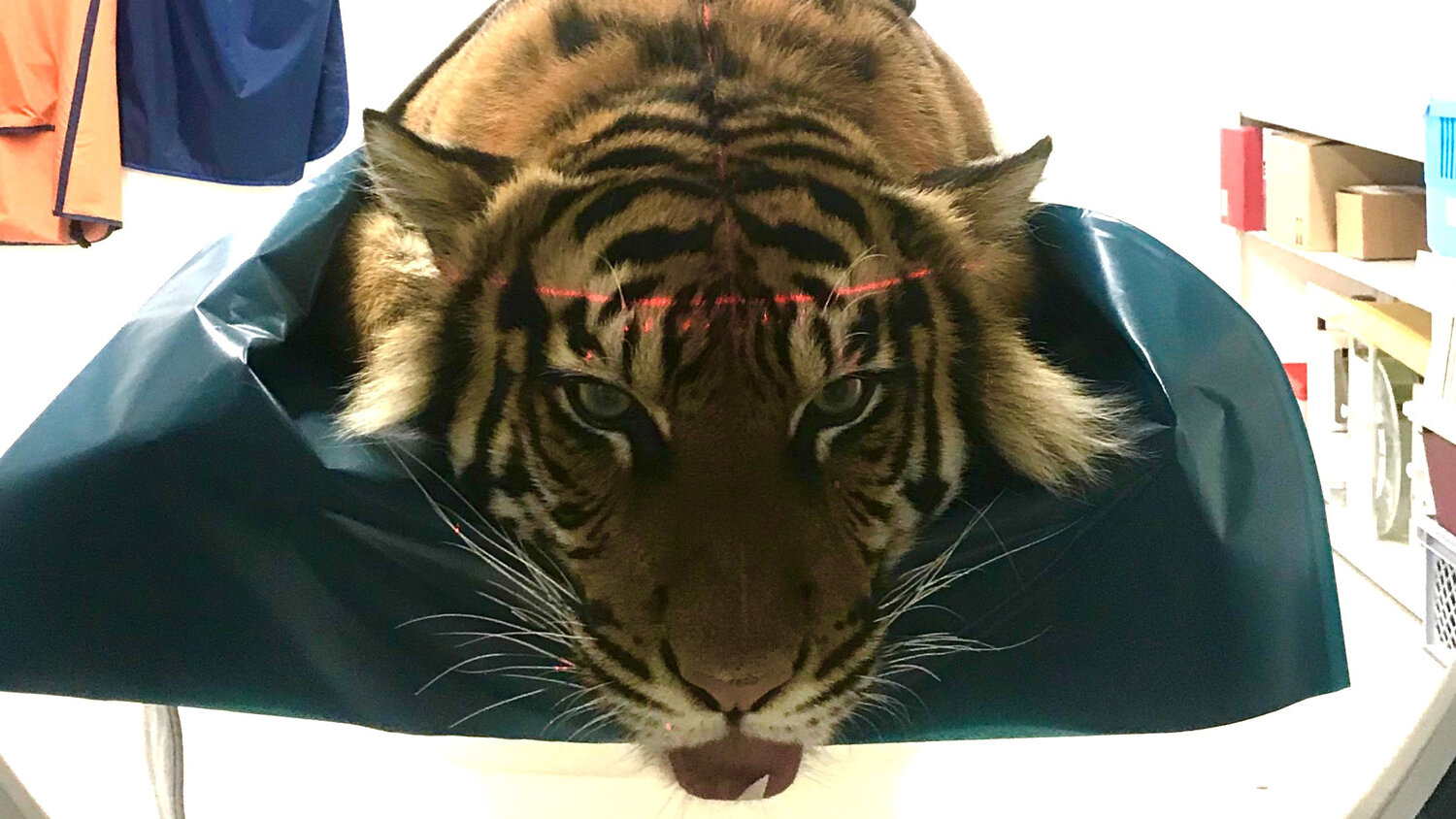Whether they’re putting tigers through a CT scanner or performing ultrasound examinations on pandas, the scientists from the Berlin Leibniz Institute for Zoo and Wildlife Research (IZW) are a great help to Zoo and Tierpark Berlin. And the close cooperation between the institutions is now to be developed further with the construction of a new IZW research building on the Tierpark grounds. Scientific research is crucial for the work of modern zoos, and the IZW is therefore a very important partner for Zoo and Tierpark Berlin. New findings help them better meet the needs of the animals in their care and contribute to efforts to protect threatened species worldwide.
The IZW is in need of more space in which to conduct its research, particularly in the field of cell biology. Constructing a new facility directly on the Tierpark grounds will enable the two institutions to work even more closely together. The land earmarked for the new IZW extension is an area on the northern edge of the Tierpark that is currently partly occupied by the Crocodile House. However, that animal house, which opened in 1987, can no longer provide modern, species-appropriate living conditions. Also, with its single layer of glazing, it is far from sustainable and cannot feasibly be upgraded. The building is responsible for around ten percent of the total heating requirements of the 160-hectare Tierpark. Its annual energy consumption corresponds to that of around 150 standard single-family homes. Tierpark Berlin is therefore helping to finance the new IZW building by tearing down the outdated Crocodile House. “Although our venerable Crocodile House is much loved by visitors and staff, we simply cannot justify the waste of energy and the greenhouse gas emissions that keeping the building would entail,” explains Zoo and Tierpark Director Dr Andreas Knieriem. “We are therefore happy to offer the IZW this area for its planned extension. In so doing, we are not only strengthening Berlin’s position as a science location, we are also making a significant contribution to conservation research. This overarching goal connects the two facilities in a way that goes above and beyond everyday veterinary care.”
Many of the animals previously housed in the Crocodile House have already moved into the recently refurbished Alfred Brehm building. Others will soon be moving, too – either elsewhere in the Tierpark, to Zoo Berlin, or to other zoos. The decisions about each move will be made in close coordination with the relevant European Endangered Species Programmes (EEPs).
Demolition of the Crocodile House is scheduled to begin in late 2021, so that construction of the new research building can start in 2023. The IZW has launched a design competition for the new building. “Unfortunately, the area we currently occupy has no space for the required extension,” says the IZW’s director Prof. Heribert Hofer. “We are therefore extremely grateful to the Berlin Senate and the Federal Ministry of Education and Research for financing our new building – and very much obliged to Tierpark Berlin for granting us the land to construct our new research facility. We look forward to cooperating even more closely with Tierpark and Zoo Berlin for the good of the animals, for environmental protection, and for the furtherance of science.” The new research building is expected to be completed in early 2025. It will be the first stage in the expanding partnership between the IZW and Tierpark Berlin. Next up, a new “Science Forum” is being planned, where Tierpark guests will be able to experience the scientific work of both institutions in a memorable and informative way.
